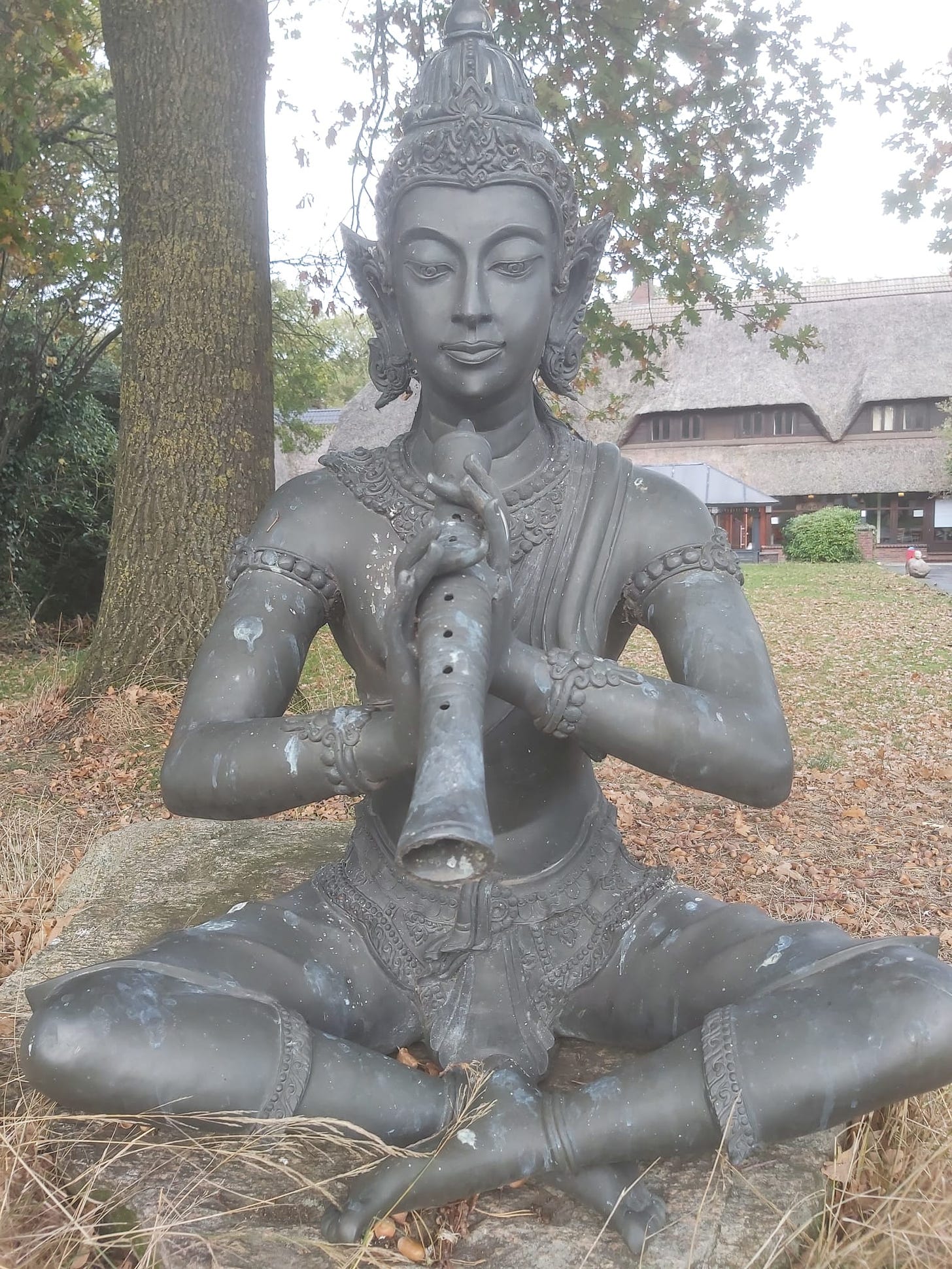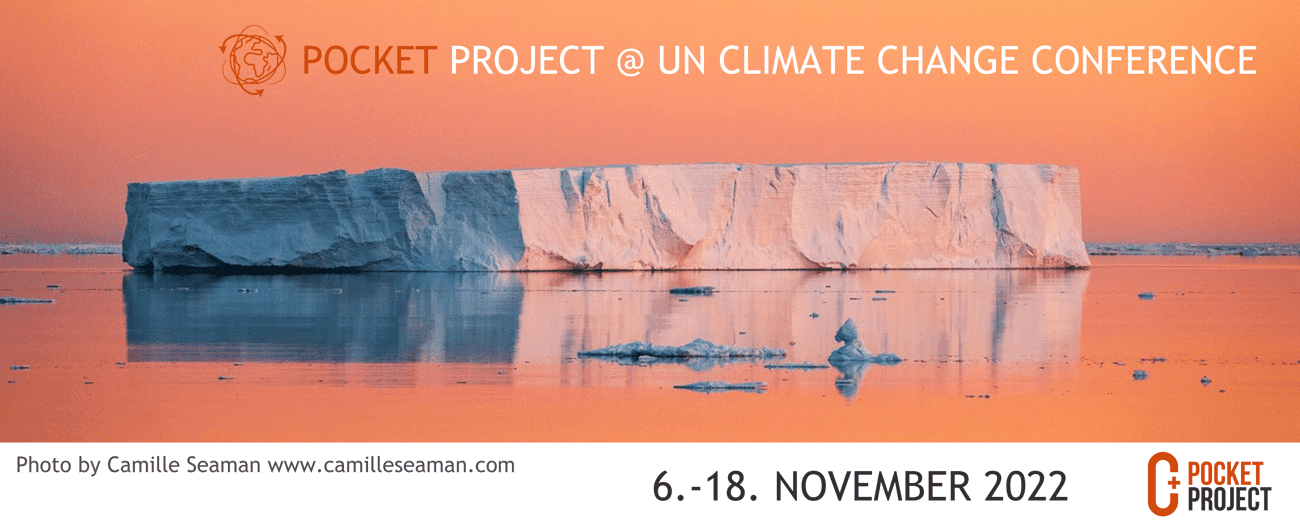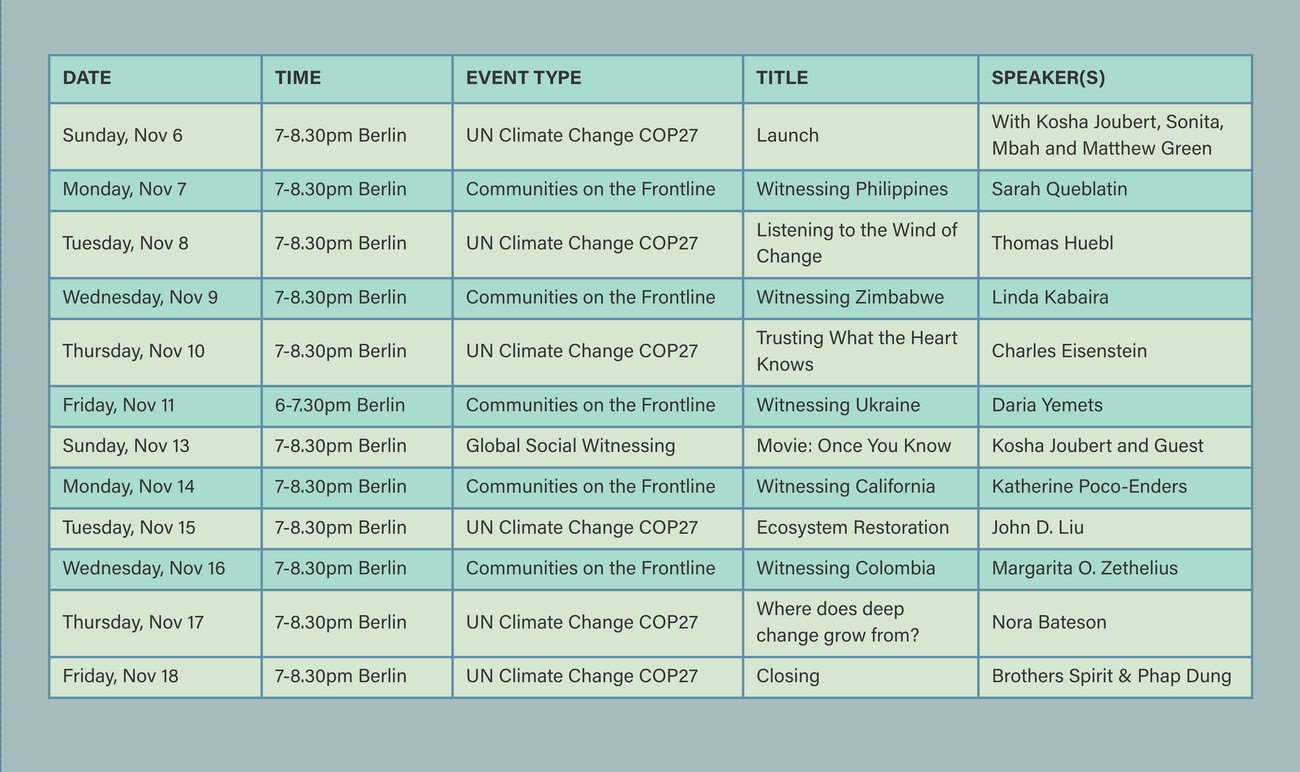A trauma-integrating approach to COP27
The Pocket Project nonprofit is running a series of sessions to help people explore their response to climate change via a process called Global Social Witnessing.
Resonant World #9
After a long train ride from London, I arrived late last night at Hof-Oberlethe, a retreat centre outside the city of Oldenburg in Lower Saxony, Germany, where I’ll be spending the next week deepening my experiential studies of individual, ancestral and collective trauma in a group of 200 students working with Thomas Hübl.
It feels like a long time since the first week-long retreat of the programme back in March, when I underwent a big process of connecting with ancestral trauma from my military lineage. I’m landing back here with a mixture of excited anticipation and some apprehension about what remains to be unearthed.
With the COP27 climate talks opening in the Egyptian resort of Sharm el-Sheikh today, I’ve also been given an unexpected opportunity to dive back into the key question Resonant World was created to answer: How can an understanding of collective trauma help us respond more effectively to the climate crisis?
Live talk tonight
I’ll be speaking this evening at the launch (1800 BST, London) of a series of free online events, meditations and dialogues offered by the Pocket Project, the nonprofit founded by Thomas and his wife Yehudit Sasportas, throughout the two-week negotiations at COP27. (You can find out more and register here).
The daily events will take place from 1800-1930 BST (London), except on Friday, Nov. 11 when it starts an hour earlier. (You can use this Time Zone Converter to convert to another time zone).
And if you want to read more thoughts about the relationship between climate change and collective trauma, I wrote this recent essay for DeSmog entitled “What The Climate Movement Can Learn From Collective Trauma Healing.”
Global Social Witnessing
The idea of the Pocket Project is to take the insights and practices developed in collective trauma work out into the world to help address today’s global crises — from climate change and the war in Ukraine, to racial injustice and the impact of COVID-19, among many others.
The goal is to help people become more aware of the way collective trauma can play out in their own organisations, institutions and communities — and find ways to move into more emergent, innovative and creative ways of operating.
That can all sound rather abstract — but the power of this work comes down to the incredible shifts that can take place in individuals when they experience the level of safety needed for long-buried emotions to rise to the surface, and the new vistas in thinking that can open up as a consequence.
One way to allow this to happen is through a process known as Global Social Witnessing — in which facilitators support people to come together to mindfully attend to a particular situation in the news. Facing what’s happening in community helps us to contact the difficult emotions that might surface without resorting to habitual defences of shutting down or going numb. As the Pocket Project puts it:
“We shift from being a mere bystander, mentally processing the latest news, to an active witness, responding from our bodies and hearts, as well as our minds. Global Social Witnessing teaches us to gently turn our attention towards rather than away from challenging events in the world.”
For an excellent explanation of how Global Social Witnessing works in practice, I recommend this article by my friend Lori Shridhare. Lori has also written about the Pocket Project’s work to support healthcare workers during the pandemic here.
Designed in a similar spirit, the Pocket Project’s COP27 programme includes daily events, meditations, updates from the talks, and reports from communities on the front lines of climate change.
The launch this evening will be led by Kosha Joubert, the Pocket Project’s chief executive (who featured in Resonant World #4), and Sonita Mbah, executive secretary of the Global Ecovillage Network Africa, and co-initiator of Bafut Ecovillage, an off-grid learning centre in northwest Cameroon.
If any of the above resonates with you, I invite you to tune in to one of the events and experience Global Social Witnessing for yourself. I’d love to hear how you get on in the comments.
Pocket Project COP27 Programme overview:
I write Resonant World because I believe that healing collective trauma is the single most important, neglected intervention we can make to change course as a species. It’s a huge energetic boost to me when readers who enjoy my posts buy me a coffee. Thank you to all those who have contributed — it means a lot.







Curious whether witnessing the news can be done without being traumatizing... I have been revisiting Bonnie Badenoch's (the Heart of Trauma author) musings about this, which I included in my latest article (on the traumatizing nature of the news media!) which (Bonnie's words) I will copy below too...
“In addition to the sheer volume of information, much of this inundation involves ongoing exposure to suffering. We are connected moment by moment to far-flung events as they unfold… our exposure to potentially traumatic events is ubiquitous and continuous. Images and sounds of war, natural disasters, and human-made devastation explicitly surround us and implicitly leave their imprint in our muscles, our belly and heart brains, our nervous systems, and the brains in our skulls.”
"Like so many changes, this current onslaught has crept up on us incrementally, until most of us are now exposed to potentially traumatic experiences many times each day. Some would say that witnessing trauma can be more harmful than enduring the experience itself because of the acute helplessness we feel."
“Because we absorb so much more implicit information than explicit, much of the time our bodies may be the only witness to this outpouring of suffering. In response, many of our systems, largely below conscious awareness, have adaptively found ways to not feel so much.”
“While we could call this desensitization, it is likely the product of us protectively shifting away from our right hemisphere neural circuitry that is attuned to the present moment and to relationships as well as sensitive to suffering, toward the left that can stay more distant and analytical (McGilchrist, 2009). This hemispheric movement does not happen by conscious choice but as an adaptive change guided by a sense of increasing danger (Porges, 2011).”
“For herein lies the danger. If our right hemispheres harbor significant trauma in the form of unhealed fear and pain or we feel overwhelmed by the sheer volume of incoming information, we may adaptively shift toward left dominance in an effort to protect ourselves from a crippling onslaught of unmanageable inner and outer experience.”